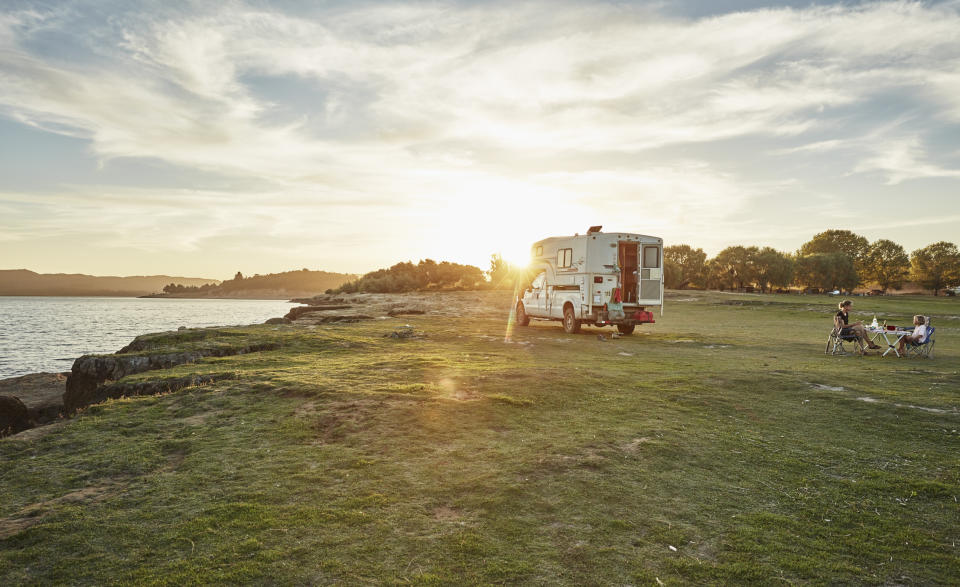How to save thousands with the share economy when you’re on holiday

Holidays are usually major expenses, with the better part of the year spent saving up for a big vacation.
According to data from Tourism Research Australia and CBA, Australians spend $4,750 on average on overseas trips and $646 on domestic trips, meaning time away from the daily grind can carve a big hole in your wallet.
But you don’t have to spend a fortune when you get away: being selective about the services and products you pick means you can have the same, if not better, experience but pay less for it.
Here are some tips on how to use the share economy to your advantage to save hunreds or even thousands on your next holiday:
1. Peer-to-peer car hire (save $455)
Through peer-to-peer car sharing services like Car Next Door, a 7-day, 300km round trip in a small car that would typically cost $750 would only set you back $295.
2. Peer-to-peer caravan hire (save $1,190)
In the same vein, hiring a four-person campervan might normally cost you $260 a night – but with Camplify (a bit like Airbnb for caravans), you’ll be spending around $90 a night. Across a one-week trip, you’d save more than $1,000 all up.
3. Book an Airbnb, not a hotel (save $1,400)
These days, savvy travellers know that they can have a comfortable and more immersive experience on holiday if they book a room with Airbnb than at a hotel. A beach-side hotel room in December could set you back $2,335 for seven nights; but opting for someone’s spare room listed on Airbnb would cost you closer to $935, a saving of $1,400.
4. Choose a pet-sitter, not a kennel (save $210)
Who will look after your pet when you zip off on holiday? A cattery or kennel might charge you up to $350 a week during peak times – but pet-sitter and dog-walker marketplace means you can find a pet-sitter in your local area to visit your pet every day from $140 a week, meaning you’ll save money and your pet will get to stay at home.
5. Rent others’ equipment (save $35)
Hitting the surf? Renting equipment from a surf rental company will cost you between $40-$60 a day – but renting from others through equipment rental platforms such as Quipmo could cut those costs down to just $25 a day.
6. Hire baby gear from others (save $60)
Hiring cots and prams through traditional baby gear rental firms would mean $80-$100 a week gone; but peer-to-peer kids equipment rental platform Kindershare would cut those costs down to a fraction, saving you about $60 a week.
7. Bonus: Make $250 by renting your driveway or parking spot
Your driveway or parking spot might be completely free when you’re away on holiday – so get it to make money for you. Through platforms like Parkhound, Parkable or Spacer, you can rent out your unused space to make $250 a month which will help offset any budget blow-outs you might end up copping.
Make your money work with Yahoo Finance’s daily newsletter. Sign up here and stay on top of the latest money, news and tech news.

 Yahoo Finance
Yahoo Finance 
